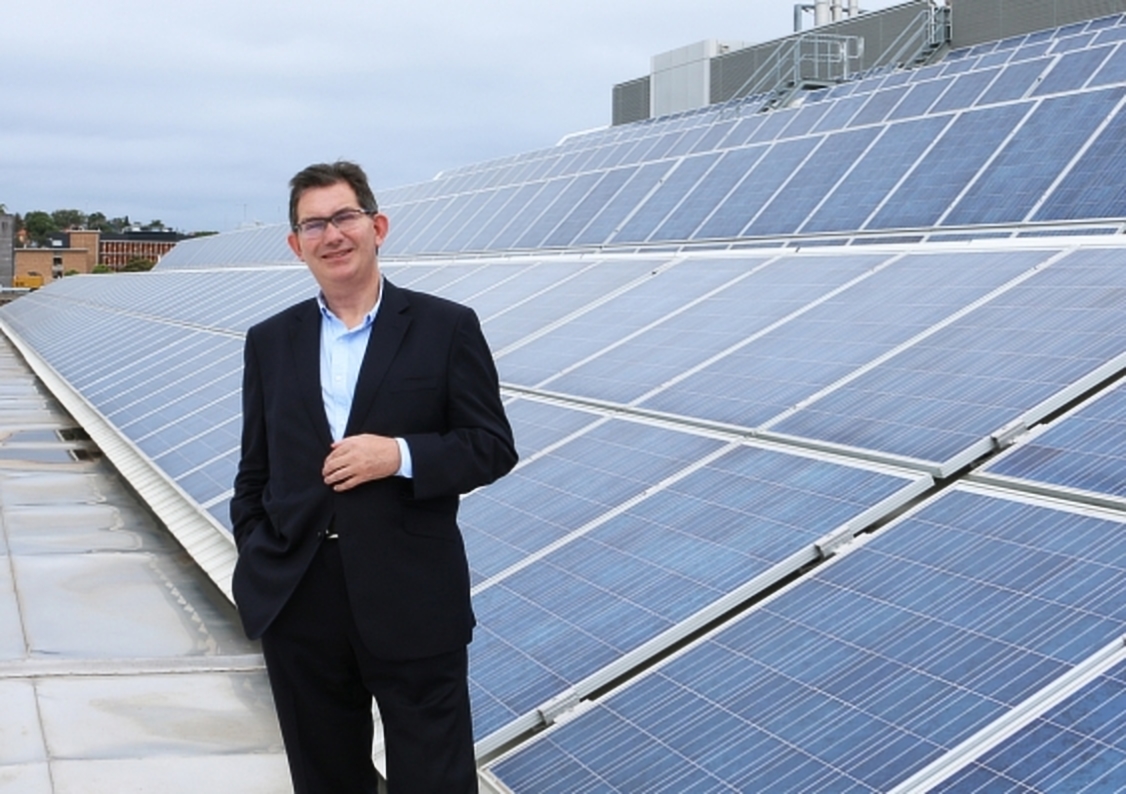By next year, UNSW Sydney will switch to 100% renewable electricity and its buildings will be greenhouse gas emissions-free as part of a new three-year sustainability plan launched on the World Environment Day.
The backbone of this plan is a 15-year power purchase agreement (PPA) to procure all of the University’s electricity from the 200 MW Sunraysia Solar Farm in rural New South Wales. The tripartite agreement – inked last year between UNSW, Chinese developer Maoneng and electricity retailer Origin – will see the University purchase up to 124,000 MWh of renewable energy to meet its annual energy requirement. A three year retail firming contract was also signed with Origin to manage the intermittency of solar production.
As Nithin Rajavelu, Partner at Everoze, a consultancy specializing in renewables, storage, and flexibility, explained for pv magazine this form of PPA is typically called a ‘synthetic’ PPA and is based on a ‘Contract for Difference’ (CfD) structure. The structure defines the relationship between the university and the generator around a ‘strike price’ for the energy generated by the solar park during the day, which means that if the market price is above the strike price for a half hourly settlement period, the generator pays a difference payment to the university, and vice versa if the market price is below the strike price.
This is a win-win case. For the University, this means they are always buying energy at a ‘fixed price’ and also receive LGCs. For the generator, this means they are selling energy at a ‘fixed price,’ which improves the bankability of the project in the eyes of lenders and investors.
Further initiatives
Additional solar power will come from rooftop installations. By 2018, UNSW Sydney had onsite solar PV generation capacity of almost 800kW – enough to power 160 homes. Its plan is to further expand this portfolio to 1.2 MWp by 2022.
Onsite solar will be used to offset energy use at the campus and will be underpinned with a 500 kWh Tesla Powerpack battery as part of a ten-year energy research trial. The battery was installed by NSW transmission business TransGrid last year behind the UNSW’s Old Main Building, which features a 112 kW rooftop solar array.
On top this, energy efficiency upgrades will target the least efficient buildings on campus, saving enough electricity to power around 400 homes by 2022. Improvements to water efficiency on campus will save 12,000 cubic metres of water per year or enough to fill five Olympic swimming pools, the UNSW reveals under its 2019-21 environmental sustainability plan.
“UNSW is a major investor, consumer and landholder and our Sydney campuses form part of the daily lives of some 62,000 students and more than 6700 staff,” said UNSW President and Vice-Chancellor Professor Ian Jacobs. “The University has the scale of a small city, so it is right that we grow and invest like any sustainable city would, with a responsible and clear plan.”
The three-year plan defines commitments, targets and activities across 10 focus areas, each supporting specific themes of the UNSW 2025 Strategy and United Nations Sustainable Development Goals (SDGs). It also lays down a Responsible Investment Framework, which will allow the University to invest in solutions to climate change and align its investment portfolio emissions intensity with the Paris Agreement commitments.
“About 50% of the solar panels sold worldwide today use UNSW-designed technology, and our alumni are at the forefront of the photovoltaics and energy transition industries globally,” Jacobs said. “Our new plan builds on these achievements while significantly raising our levels of ambition to respond to the scale of environmental challenges we face today.”
This content is protected by copyright and may not be reused. If you want to cooperate with us and would like to reuse some of our content, please contact: editors@pv-magazine.com.









1 comment
By submitting this form you agree to pv magazine using your data for the purposes of publishing your comment.
Your personal data will only be disclosed or otherwise transmitted to third parties for the purposes of spam filtering or if this is necessary for technical maintenance of the website. Any other transfer to third parties will not take place unless this is justified on the basis of applicable data protection regulations or if pv magazine is legally obliged to do so.
You may revoke this consent at any time with effect for the future, in which case your personal data will be deleted immediately. Otherwise, your data will be deleted if pv magazine has processed your request or the purpose of data storage is fulfilled.
Further information on data privacy can be found in our Data Protection Policy.